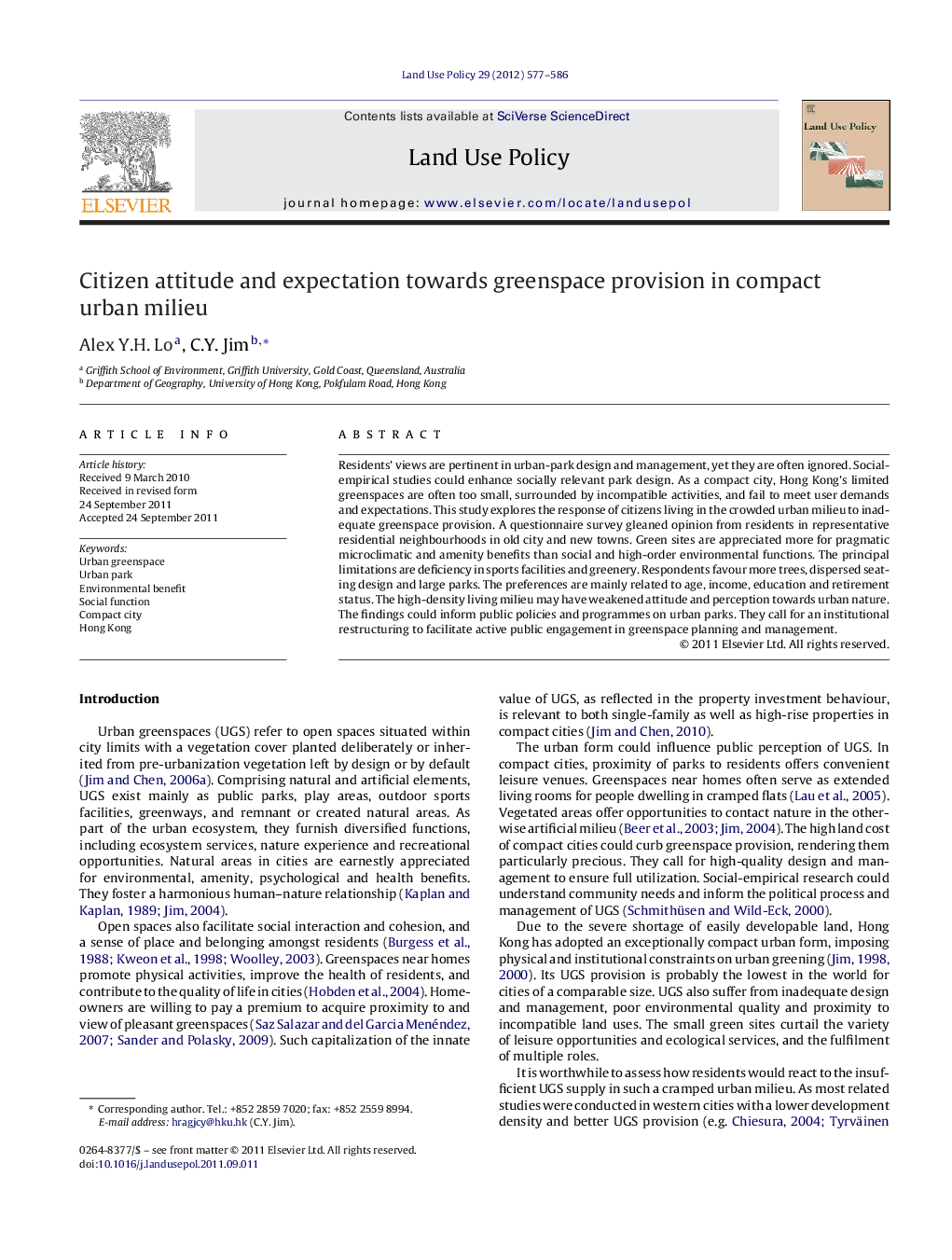| Article ID | Journal | Published Year | Pages | File Type |
|---|---|---|---|---|
| 93287 | Land Use Policy | 2012 | 10 Pages |
Residents’ views are pertinent in urban-park design and management, yet they are often ignored. Social-empirical studies could enhance socially relevant park design. As a compact city, Hong Kong's limited greenspaces are often too small, surrounded by incompatible activities, and fail to meet user demands and expectations. This study explores the response of citizens living in the crowded urban milieu to inadequate greenspace provision. A questionnaire survey gleaned opinion from residents in representative residential neighbourhoods in old city and new towns. Green sites are appreciated more for pragmatic microclimatic and amenity benefits than social and high-order environmental functions. The principal limitations are deficiency in sports facilities and greenery. Respondents favour more trees, dispersed seating design and large parks. The preferences are mainly related to age, income, education and retirement status. The high-density living milieu may have weakened attitude and perception towards urban nature. The findings could inform public policies and programmes on urban parks. They call for an institutional restructuring to facilitate active public engagement in greenspace planning and management.
► Greenspaces are mainly appreciated for pragmatic microclimatic and amenity benefits. ► Less concerned about high-order environmental and social functions. ► Demand for more sports facilities, trees, dispersed seats and larger parks. ► Preferences are related to age, income, education and retirement status. ► Findings call for effective public engagement to inform greenspace policies.
